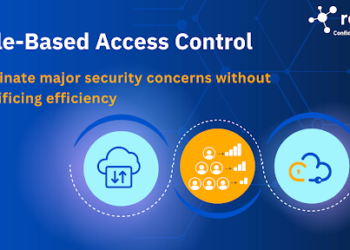Email has become a cornerstone of communication for individuals and organizations alike, yet it remains a common target for cyberattacks. From phishing scams to data breaches, unsecured emails are a goldmine for hackers seeking sensitive information. Email encryption has emerged as a vital tool in the fight against such threats. It safeguards personal and professional communication and addresses legal, financial, and reputational risks. Below, we explore the ten main benefits of email encryption and how leading firms like Echoworx exemplify the application of these security principles.
1. Protecting Data Confidentiality
Confidentiality is a fundamental principle of secure communication. Email encryption ensures that only the intended recipient can access and read the email’s content. This is achieved through sophisticated algorithms that convert plain text into an unreadable format unless decrypted with the proper key. This layer of security is essential for safeguarding sensitive data, such as financial details, medical records, and business contracts. A 2024 study by IBM found that the average cost of a data breach was $4.88 million, underscoring the importance of preventive measures like encryption to avoid costly consequences.
2. Shielding Against Cyber Threats
Cyber threats are becoming increasingly sophisticated, with attackers deploying tactics like man-in-the-middle attacks, email spoofing, and phishing schemes. Encryption mitigates these risks by rendering intercepted emails unreadable. According to a 2024 report by Verizon, 68% of breaches involved a non-malicious human element, including email-based social engineering attacks. Robust encryption protocols help neutralize these threats, offering organizations a reliable shield.
3. Ensuring Regulatory Compliance
Governments and regulatory bodies worldwide have implemented stringent data protection laws to ensure the privacy of individuals’ information. For instance, the European Union’s General Data Protection Regulation (GDPR) and the United States’ Health Insurance Portability and Accountability Act (HIPAA) mandate secure handling of sensitive data. Non-compliance can result in hefty fines and reputational damage. Email encryption supports compliance by safeguarding data in transit and at rest, making it a critical requirement for industries such as healthcare, finance, and law.
4. Preventing Identity Theft
Identity theft is a pervasive issue that affects millions annually and it is only skyrocketing. One study looked at the prevalence of identity theft and found that In 2023, the average time consumers spent resolving identity fraud issues increased significantly from six hours in 2022 to nearly 10 hours, creating notable disruptions for individuals and financial institutions alike. Theft Resource Center predicts that the psychological toll of identity theft will become more severe, with discussions of suicide linked to these incidents raising alarms about the crisis’s emotional impact.
Hackers often exploit unsecured emails to impersonate individuals or organizations, leading to fraudulent activities. Encryption combats this by incorporating digital signatures, which verify the authenticity of the sender and ensure the integrity of the email content. Echoworx, for instance, employs advanced encryption standards to authenticate communication and protect against identity-based attacks, setting an industry benchmark.
5. Enabling Secure Remote Work
The shift to remote work has increased reliance on digital communication, often over unsecured networks like public Wi-Fi. This raises the risk of data interception. Email encryption provides a secure channel for exchanging sensitive information, ensuring that employees working from various locations can communicate without compromising data security. A Gartner report from 2023 highlighted that secure communication tools, including encrypted email platforms, are a top priority for businesses adapting to decentralized work models.
6. Building Trust and Enhancing Reputation
In today’s digital age, trust is a valuable currency. Organizations prioritizing secure communication demonstrate a commitment to protecting the privacy of their stakeholders. This builds trust with clients, partners, and customers. When businesses implement encryption, they signal their dedication to security, which can positively influence their reputation. An International Association of Privacy Professionals study revealed that 68% of consumers view data security as a key factor in their online engagements, and over 80% are likely to stop doing business with a company that has had a data breach.
7. Preventing Data Loss in Case of Misdelivery
Accidental email misdelivery is a common occurrence that can result in unintended data exposure. With encryption, even if an email is sent to the wrong recipient, its content remains inaccessible without the correct decryption key. This feature minimizes the risks associated with human error, providing an additional layer of protection against data leaks.
8. Offering Long-Term Security
Emails often contain information that needs to be preserved for years, whether for legal, regulatory, or operational purposes. Encryption ensures that archived or backed-up emails remain secure over time. Even as cyber threats evolve, encrypted emails retain their integrity, safeguarding sensitive information for the long term. Research from the Ponemon Institute emphasizes the growing importance of long-term data security as organizations increasingly rely on digital communication for critical record-keeping.
9. Protecting Attachments
Email attachments often carry sensitive data, such as financial reports, proprietary business documents, or personal files. Encryption safeguards not just the email text but also its attachments, ensuring that unauthorized parties cannot access the shared content. This feature is particularly valuable for industries like finance and healthcare, where the exchange of confidential documents is routine. By securing attachments alongside email content, firms like Echoworx help organizations maintain the highest standards of information security.
10. Complementing Broader Security Measures
Encryption is not a standalone solution but a crucial component of a comprehensive security strategy. It works seamlessly with other measures, such as firewalls, intrusion detection systems, and antivirus software, to create a multi-layered defense against cyber threats. Echoworx’s adaptive encryption solutions, for example, integrate with existing IT frameworks, providing organizations with a flexible and efficient approach to secure communication.
The Strategic Importance of Email Encryption
The benefits of email encryption extend beyond technical advantages. It addresses critical business concerns, such as risk management, regulatory compliance, and stakeholder trust. As cyber threats grow in sophistication, encryption has transitioned from being a luxury to a necessity in protecting sensitive communication.
Real-world applications illustrate its impact. For example, in 2022, a large financial institution implemented advanced encryption protocols across its global email network. This move reduced phishing attacks by 60% and improved compliance with international data protection regulations, saving the company millions in potential fines and losses.
Echoworx, a leader in the field, offers an exemplary model for encryption solutions. While not exclusive to any one provider, their adaptive and user-friendly platforms showcase how organizations can leverage encryption to address diverse challenges. Their ability to customize encryption methods based on user needs reflects the growing demand for flexible, robust, and efficient security tools.
Email encryption is no longer optional in a digital space where cyber threats are pervasive and regulations are stringent. Its ability to protect confidentiality, prevent cyberattacks, and support regulatory compliance makes it an indispensable tool for both individuals and organizations. As firms like Echoworx continue to innovate, the adoption of secure email practices becomes increasingly accessible and effective, paving the way for safer digital communication for all. By prioritizing encryption, businesses and individuals alike can safeguard their information, mitigate risks, and foster trust in their digital interactions.













